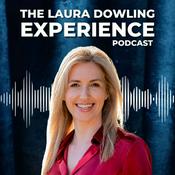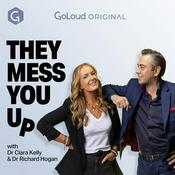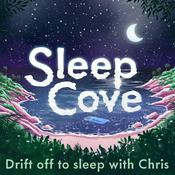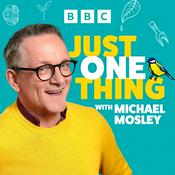Better Than Before Breast Cancer with The Breast Cancer Recovery Coach
Laura Lummer

Latest episode
450 episodes
- What does the science actually say about red meat after breast cancer?
In this episode, Laura Lummer begins a new series focused on separating nutrition myths from facts. The conversation was sparked by hearing a physician recommend a low-fat, high-fiber diet with no red meat to an entire room of cancer patients.
Laura explains why that kind of advice ignores bio individuality and why nutrition science is far more nuanced than headlines suggest.
This episode breaks down how observational studies work, what statistically significant means, and why one of the most cited red meat studies cannot be used to create universal food rules.
Topics include:
Observational studies vs randomized trials
Self-reported diet recall and its limitations
What statistically significant really means
The Stanford SWAP-MEAT trial explained
Why one diet does not fit everybody
Let's Connect!
If this episode helped you breathe a little easier, please share it with a friend or leave a review. Every share helps spread this message of hope, healing, and whole-person wellness.
💌 Join my email list for weekly wellness tips & podcast updates → The Breast Cancer Recovery Coach
💌 Join the Better Than Before Breast Cancer Life Coaching Membership → Life Coaching
👩💻 Follow me on Instagram for daily inspiration → @thebreastcancerrecoverycoach
👩💻 Follow me on Facebook → The Breast Cancer Recovery Coach
🎙 Subscribe & leave a review on Apple Podcasts → Better Than Before Breast Cancer with The Breast Cancer Recovery Coach
🎥 Watch on YouTube → @BetterThanBeforeBreastCancer - Diet plans. Supplements. Protocols. Podcasts. Advice from well-meaning people. At some point, all of that support can stop feeling helpful and start feeling overwhelming.
In this episode, Laura shares a real-life story that highlights how stress and unresolved trauma can impact metabolic health, even when diet and exercise look "right." She explains why consistency, tracking data, and self-honesty matter so much when making changes, and how constantly switching approaches can keep us stuck.
This episode offers permission to slow down, turn down the noise, and focus on what truly supports healing after breast cancer.
Let's Connect!
If this episode helped you breathe a little easier, please share it with a friend or leave a review. Every share helps spread this message of hope, healing, and whole-person wellness.
💌 Join my email list for weekly wellness tips & podcast updates → The Breast Cancer Recovery Coach
💌 Join the Better Than Before Breast Cancer Life Coaching Membership → Life Coaching
👩💻 Follow me on Instagram for daily inspiration → @thebreastcancerrecoverycoach
👩💻 Follow me on Facebook → The Breast Cancer Recovery Coach
🎙 Subscribe & leave a review on Apple Podcasts → Better Than Before Breast Cancer with The Breast Cancer Recovery Coach
🎥 Watch on YouTube → @BetterThanBeforeBreastCancer - At the beginning of the year, affirmations are everywhere. But if you have ever felt frustrated, tense, or discouraged while trying to use affirmations, this episode explains why.
In Episode 446, Laura shares why affirmations that are not believable often create internal pushback, self-judgment, and cognitive dissonance, and why this is not a personal failure.
You will learn how the brain responds to thoughts that feel untrue, how glimmers signal safety to the nervous system, and how to choose words that gently move you forward in healing, relationships, business, and lifestyle change.
This episode offers a realistic and compassionate approach to mindset work that works with your brain instead of against it.
Let's Connect!
If this episode helped you breathe a little easier, please share it with a friend or leave a review. Every share helps spread this message of hope, healing, and whole-person wellness.
💌 Join my email list for weekly wellness tips & podcast updates → The Breast Cancer Recovery Coach
💌 Join the Better Than Before Breast Cancer Life Coaching Membership → Life Coaching
👩💻 Follow me on Instagram for daily inspiration → @thebreastcancerrecoverycoach
👩💻 Follow me on Facebook → The Breast Cancer Recovery Coach
🎙 Subscribe & leave a review on Apple Podcasts → Better Than Before Breast Cancer with The Breast Cancer Recovery Coach
🎥 Watch on YouTube → @BetterThanBeforeBreastCancer - Have you ever wondered why the new year brings so much pressure to move faster, even when your body feels tired and out of sync?
In this episode, Laura shares a perspective that reframes fatigue, resistance, and the urge to slow down through the lens of evolutionary mismatch and seasonal rhythm. Rather than pushing harder, this conversation invites curiosity, compassion, and a deeper understanding of what your body may be asking for right now.
This episode is especially supportive for women navigating life after breast cancer who want to build health and healing without forcing themselves into timelines that do not fit their biology.
Resources:
Why We Get Sick: The New Science of Darwinian Medicine
https://amzn.to/499dt2p
The Story of the Human Body: Evolution, Health, and Disease
https://amzn.to/49aBrdJ
Let's Connect!
If this episode helped you breathe a little easier, please share it with a friend or leave a review. Every share helps spread this message of hope, healing, and whole-person wellness.
💌 Join my email list for weekly wellness tips & podcast updates → The Breast Cancer Recovery Coach
💌 Join the Better Than Before Breast Cancer Life Coaching Membership → Life Coaching
👩💻 Follow me on Instagram for daily inspiration → @thebreastcancerrecoverycoach
👩💻 Follow me on Facebook → The Breast Cancer Recovery Coach
🎙 Subscribe & leave a review on Apple Podcasts → Better Than Before Breast Cancer with The Breast Cancer Recovery Coach
🎥 Watch on YouTube → @BetterThanBeforeBreastCancer #444 Cold and Flu Season After Breast Cancer - Gentle Ways to Support Your Immune System
02/1/2026 | 25 mins.Cold and flu season can feel extra challenging after breast cancer, especially when energy is already low after the holidays. In Episode 444, Laura shares gentle, practical ways to support your immune system during winter without fear or pressure.
You will learn how the immune system works, why it is not meant to stay activated, and how sleep, stress, and hormone shifts influence immune health. Laura also discusses seasonal food wisdom, herbs and spices, movement during winter, emotional care, and how making choices from self-love supports resilience.
This episode focuses on nourishment, rest, boundaries, and compassion rather than perfection or control.
Resources:
Everyone's Table: Global Recipes for Modern Health
https://amzn.to/3Nb70eF
Let's Connect!
If this episode helped you breathe a little easier, please share it with a friend or leave a review. Every share helps spread this message of hope, healing, and whole-person wellness.
💌 Join my email list for weekly wellness tips & podcast updates → The Breast Cancer Recovery Coach
👩💻 Follow me on Instagram for daily inspiration → @thebreastcancerrecoverycoach
👩💻 Follow me on Facebook → The Breast Cancer Recovery Coach
🎙 Subscribe & leave a review on Apple Podcasts → Better Than Before Breast Cancer with The Breast Cancer Recovery Coach
🎥 Watch on YouTube → @BetterThanBeforeBreastCancer
More Health & Wellness podcasts
Trending Health & Wellness podcasts
About Better Than Before Breast Cancer with The Breast Cancer Recovery Coach
Laura is a Certified Life, Health, Nutrition Coach, and Wellness professional.
She's a two-time breast cancer survivor living with metastatic disease.
Laura supports women in dropping their warrior shield after a diagnosis and treatment of breast cancer so they can release the pressure to go back to normal and create a life that's even better than before breast cancer.
These twice-weekly episodes give you tools you can apply to your life today, to support your body and your mind as you manage life after breast cancer.
Podcast websiteListen to Better Than Before Breast Cancer with The Breast Cancer Recovery Coach, The High Performance Podcast and many other podcasts from around the world with the radio.net app

Get the free radio.net app
- Stations and podcasts to bookmark
- Stream via Wi-Fi or Bluetooth
- Supports Carplay & Android Auto
- Many other app features
Get the free radio.net app
- Stations and podcasts to bookmark
- Stream via Wi-Fi or Bluetooth
- Supports Carplay & Android Auto
- Many other app features


Better Than Before Breast Cancer with The Breast Cancer Recovery Coach
Scan code,
download the app,
start listening.
download the app,
start listening.






































